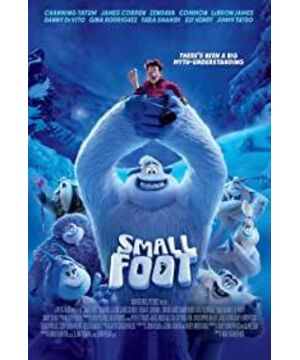There are three aspects to talk about about Yeti Adventures.
From the perspective of animation production, it is a first-class production. Compared with unpopular works, excellent animations use stories to promote the development of plots, and do not develop plots with human intervention. Therefore, each new chapter or turning point is so natural, and the psychological changes of the protagonist are the same as those of the audience, which is in line with everyone's psychological expectations: why? That's how it should be. However, animation is animation after all, it will not be too load-bearing and realistic, and it also has a guiding role. In the end, the prince and princess are happy together. A little development: the ability of animation goes beyond the scope of animation, like the role of the clown as an educator, which is entertainment to death. Not a plaything that kills for entertainment.
The whole movie revolves around what the truth is. We often say that philosophy is to love wisdom, and to love wisdom is to be sincere. This is especially true of science. The falsification of papers that often occurs at this stage is destroying the foundation of science. Repeated experiments and falsifications are the mechanisms that drive us to sit here and watch film reviews. Destroying these is like cheating on an exam, never knowing your abilities and the reasons for your future troubles. In the film, truth is driven by curiosity, protected by power, and supported by fear of power, pain, and grief. Speaking of the last truth, one will think of Romain Rolland's words: There is only one true heroism in the world, that is, after recognizing the truth of life and still loving it. And this point can also be seen from the perspective of Nietzsche and Schopenhauer, the world is a blind will to survive, life is inherently painful, a little satisfaction just replaces painful boredom, swaying in the pendulum waiting for death. Nietzsche goes even further. Pain is the proof of the existence of human beings. Recognizing the pessimism of the world, we still have to love her, just like loving a woman who has already made us suspicious of infidelity. Secondly, you can also experience an alternative truth: the truth is not fixed, it is always flowing. Like the old village chief, the truth belongs to a stone that cannot be moved in the distant past, while for young people, the truth is sand that moves with the wind. Drifting, does not belong to the present, does not belong to the past, does not belong to the future, belongs to the right occurrence of the right time.
In the whole movie, I lamented more than once that this is too heavy for children. Don't you see that the children in the movie are blindly admiring coolness, a positive resistance, not a violent maverick. In the face of children, we need to think carefully about what to give. For children's education, I think it is the problem of how to deal with the relationship between parents and children in the face of the third party. Parents actively or passively explain, no explanation, children's sharing or not sharing. Children are not as rational as adults when facing the truth. Most of them are based on whether they have a safe environment. The safety here can borrow Maslow's needs, so I won't say much here. So look back at my title, which is from Salinger's Heart of Broken Stories: Love wants to touch, and then takes it back . Not only the truth, animation production, education, are you willing to face your emotions and take responsibility without concealment? Understand, be happy, and be responsible.
View more about Smallfoot reviews











